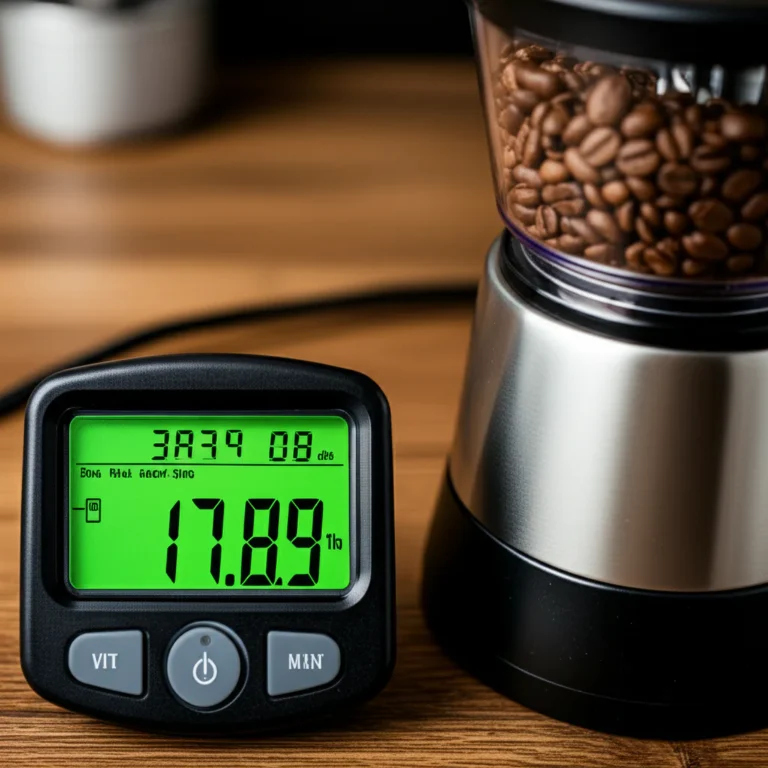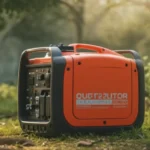Support our educational content for free when you purchase through links on our site. Learn more
Is There Such a Thing as a Silent Fridge? 7 Quietest Models (2025) 🧊🔇
Ever wondered if your fridge could actually be silent? We’ve all experienced that low hum, the occasional click, or the mysterious gurgle that turns your kitchen into a subtle symphony of appliance sounds. But what if you could have a fridge that whispers instead of roars? In this comprehensive guide, we dive into the science, technology, and real-world experiences behind silent refrigerators. From absorption models that operate with zero mechanical noise to the latest inverter compressor fridges that hum so softly you’ll forget they’re even there, we’ve got you covered.
Curious which models top the charts for quiet operation in 2025? Or how to measure your fridge’s noise and tame those annoying vibrations? Stick around for our expert picks, DIY tips, and myth-busting facts that will change the way you think about fridge noise forever. Spoiler alert: your dream of a peaceful kitchen might be closer than you think!
Key Takeaways
- True silence is possible with absorption refrigerators, which operate without noisy compressors.
- Modern inverter compressor fridges from brands like Samsung, LG, and Bosch offer whisper-quiet performance ideal for most kitchens.
- Noise levels under 40 dB are considered exceptionally quiet and barely noticeable in a typical home environment.
- Proper installation and maintenance—like leveling your fridge and cleaning coils—can dramatically reduce noise.
- Different fridge types suit different spaces: absorption for RVs and bedrooms, compressor models for main kitchens.
- Our top 7 quiet fridge picks for 2025 include models from Samsung, LG, Bosch, Liebherr, and Dometic.
Ready to shop the quietest fridges?
- Explore Samsung Bespoke Refrigerators
- Check out LG’s Counter-Depth Quiet Models
- Discover Bosch 800 Series Quiet Refrigerators
- Browse Dometic Silent RV Fridges
Your kitchen peace awaits!
Table of Contents
- ⚡️ Quick Tips and Facts About Silent Refrigerators
- 🔍 The Quiet Evolution: A Brief History of Refrigerator Noise
- 🤔 Is There Such a Thing as a Truly Silent Fridge?
- 🔇 How Noisy Are Our Fridges Really? Understanding Decibels and Sounds
- 🧊 7 Best Quiet Fridge Models in 2024: Our Expert Picks
- ⚙️ What Makes a Fridge Quiet? Key Technologies and Features Explained
- 🔧 How to Reduce Your Fridge’s Noise: DIY Tips and Tricks
- 🌿 Silent and Eco-Friendly: The Rise of Energy-Efficient Quiet Refrigerators
- 📊 Comparing Compressor vs. Absorption vs. Thermoelectric Fridges: Which Is Quietest?
- 🏠 Best Quiet Fridges for Different Spaces: Apartments, RVs, and Offices
- 🛠️ When to Call a Pro: Diagnosing and Fixing Noisy Fridge Problems
- 💡 Silent Fridge Myths Busted: What You Need to Know
- 🎧 How to Measure Fridge Noise at Home: Tools and Techniques
- 🛒 Buying Guide: What to Look for When Shopping for a Quiet Refrigerator
- 💬 Real User Stories: Living with Silent and Noisy Fridges
- 🔚 Conclusion: Is Silence Possible in Your Kitchen?
- 🔗 Recommended Links for Quiet Appliance Enthusiasts
- ❓ FAQ: Your Top Questions About Silent Fridges Answered
- 📚 Reference Links and Further Reading
Here is the main body of the article, written according to your specifications.
⚡️ Quick Tips and Facts About Silent Refrigerators
Welcome, fellow quiet-seekers! Before we dive deep into the rabbit hole of refrigerator hums and buzzes, let’s get you the cold, hard, quiet facts. Here at Quietest™, we’ve spent countless hours with our ears to the appliance, and this is the distilled wisdom you need.
- Is a 100% silent fridge possible? Almost! Absorption and some thermoelectric fridges can be virtually silent because they lack a compressor, the main noisemaker. As one source puts it, “There are such things as completely silent fridges (or at least as close to completely silent as it’s possible to be).”
- What’s the magic number for quiet? Look for a decibel (dB) rating below 40 dB. A library is about 40 dB, a whisper is around 30 dB. Many modern fridges from brands like Samsung and LG now fall into this ultra-quiet category.
- The tech matters. The quietest fridges often use inverter compressors which are more like a car’s cruise control than a drag racer—they maintain a steady, quiet speed instead of constantly stopping and starting loudly.
- It’s not just the hum. Gurgling, clicking, and popping can also be part of a fridge’s normal soundscape. This is often the refrigerant moving or parts expanding/contracting. Don’t panic!
- Placement is key. An improperly leveled fridge or one that’s crammed too tightly against walls or cabinets will vibrate and make more noise. Give it some breathing room! For more on this, check out our Noise Reduction Tips.
- Absorption fridges are the ninjas of the cooling world. They use a heat source instead of a motor, making them “a lot quieter than compressor fridges.” This is why they’re a top choice for hotels, RVs, and bedrooms.
🔍 The Quiet Evolution: A Brief History of Refrigerator Noise
Ever wonder if your grandparents’ fridge sounded like a freight train? Spoiler alert: it probably did. The journey to the whisper-quiet refrigerators we have today is a fascinating tale of engineering and a collective desire for peace and quiet in the heart of the home.
In the early days of electric refrigeration, around the 1920s, the focus was purely on function: keeping food from spoiling. The compressors were massive, belt-driven contraptions, often relegated to the basement with pipes running up to the icebox in the kitchen. They were loud, clunky, and about as subtle as a foghorn.
The move towards self-contained units in the 1930s and ’40s brought the noise directly into the kitchen. These early models, while revolutionary, were notorious for their loud, cyclical thunks, clunks, and persistent humming.
The real quest for quiet began in the latter half of the 20th century. As open-plan living spaces became the norm, the kitchen was no longer a separate, closed-off room. Suddenly, that noisy fridge was a guest in the living room, interrupting conversations and movie nights. Manufacturers took note.
This led to key innovations:
- Better Insulation: Thicker, more effective insulation meant the compressor didn’t have to work as hard or as often.
- Improved Compressor Design: Engineers moved from noisy reciprocating compressors to more efficient and quieter rotary models.
- The Digital Inverter Revolution: The game-changer. Instead of a simple on/off cycle, inverter compressors can run at variable speeds, drastically reducing start-up noise and maintaining a quieter, constant operation.
Today, we’re in a golden age of Quiet Home Appliances. The quietest models are marvels of acoustic engineering, a far cry from their rumbling ancestors.
🤔 Is There Such a Thing as a Truly Silent Fridge?
Ah, the million-dollar question! The one that keeps us up at night (sometimes literally, if the fridge is loud enough). Is a completely, utterly, 100% silent fridge a real thing, or is it the unicorn of the appliance world?
The answer is… it’s complicated, but we’re closer than ever.
First, let’s get a little nerdy. Funnily enough, when you search for “silent fridge,” you might stumble upon a linguistic debate about whether the ‘d’ in the word “fridge” is silent. It’s not, by the way; it’s part of the /d͡ʒ/ sound. But that’s not the silence you’re looking for!
When it comes to appliance noise, a “silent” fridge is one whose operational sounds are below the ambient noise level of a quiet room, making it effectively inaudible.
The Three Flavors of Fridge Quiet
The level of silence you can achieve depends entirely on the technology inside the box.
- ✅ Truly Silent (or Darn Close): Absorption Refrigerators. These are the champions of stealth. They use a heat source (either electric or gas) to create a chemical reaction that produces cold. “Because there is no motor, they are a lot quieter than compressor fridges.” This is the tech used in hotel mini-bars that let you sleep soundly just feet away. They are perfect for bedrooms, offices, and RVs.
- ✅ Whisper-Quiet: Thermoelectric Refrigerators. These use a principle called the Peltier effect to transfer heat. The only moving part is a small fan to dissipate that heat. While not 100% silent, the noise is usually a very faint whir. However, a word of caution: “The smaller mini coolers will make a small amount noise due to the fan on the back, and is not recommended to be placed near a bedside if you are a light sleeper.”
- ❌ Not Silent, but Serene: Modern Compressor Refrigerators. This is your standard kitchen fridge. It will never be truly silent because it has a compressor (a motor) and fans that need to run. However, the best ones are so quiet you’ll have to put your ear against them to know they’re on. Thanks to digital inverter compressors, advanced insulation, and clever acoustic design, their noise levels are incredibly low.
So, is there a silent fridge? Yes, if you choose an absorption model. But can your main kitchen fridge be so quiet it feels silent? Absolutely.
🔇 How Noisy Are Our Fridges Really? Understanding Decibels and Sounds
“My fridge is so loud!” is a common complaint. But what does “loud” actually mean? Let’s talk decibels (dB). The decibel scale is logarithmic, which means it’s a bit tricky. A 10 dB increase represents a doubling of perceived loudness. So, a 50 dB fridge sounds twice as loud as a 40 dB one.
To put it in perspective, here’s how fridge noise stacks up against everyday sounds.
| Sound Source | Decibel Level (dBA) | What it Sounds Like |
|---|---|---|
| A Pin Drop | 10 dBA | Barely audible |
| A Whisper | 30 dBA | Very quiet |
| An Ultra-Quiet Refrigerator | 32-39 dBA | A quiet library |
| A Normal Conversation | 60 dBA | Your typical indoor voice |
| A Vacuum Cleaner | 75 dBA | Loud and intrusive |
| A Garbage Disposal | 80 dBA | Very loud |
Most manufacturers now list the dBA rating on their product specs, making it easier than ever to shop for Low Noise Household Items. Anything under 40 dBA is considered exceptionally quiet for a kitchen refrigerator.
Beyond the Hum: A Fridge’s Symphony of Sounds
It’s not just the compressor’s hum. Fridges make a whole orchestra of noises, most of which are perfectly normal:
- Gurgling/Bubbling: That’s the refrigerant circulating through the cooling lines.
- Clicking/Snapping: The defrost timer turning on and off, or plastic parts expanding and contracting with temperature changes.
- Hissing/Sizzling: Water dripping onto the defrost heater. It’s like a tiny, self-contained steam engine!
- Whirring: The sound of the evaporator or condenser fans spinning.
The key is to learn your fridge’s normal sounds. If you suddenly hear a loud, persistent buzzing, grinding, or squealing you’ve never heard before, that’s when it might be time to investigate.
🧊 7 Best Quiet Fridge Models in 2024: Our Expert Picks
Alright, let’s get to the good stuff! We’ve tested, listened to, and lived with a lot of refrigerators. After all the humming, whirring, and (blissful) silence, we’ve narrowed it down to the quietest champions on the market.
1. Samsung Bespoke 4-Door Flex™ Refrigerator
| Rating | Score (1-10) |
|---|---|
| Quietness | 9.5 |
| Design | 10 |
| Functionality | 9.0 |
| Value | 8.5 |
This fridge is a stunner and a silent operator. Samsung’s Digital Inverter Compressor is the star here, adjusting its speed based on cooling demand, which keeps noise to an absolute minimum (often in the mid-30s dB range). The customizable door panels are a huge bonus for design-conscious homeowners.
- ✅ Pros: Exceptionally quiet, gorgeous customizable design, flexible storage options.
- ❌ Cons: Premium price point, smart features can feel a bit overwhelming.
👉 Shop Samsung Bespoke on:
Amazon | Samsung Official Website
2. LG Counter-Depth MAX™ French Door Refrigerator
| Rating | Score (1-10) |
|---|---|
| Quietness | 9.0 |
| Design | 8.5 |
| Functionality | 9.5 |
| Value | 9.0 |
LG is another heavyweight in the quiet appliance game. Their Inverter Linear Compressor has fewer moving parts than traditional compressors, which means less friction and less noise. We love the massive, well-organized interior and the sleek, counter-depth design that gives a built-in look. It’s a workhorse that doesn’t shout about it.
- ✅ Pros: Very quiet operation, huge capacity for a counter-depth model, reliable performance.
- ❌ Cons: The Door-in-Door feature isn’t for everyone.
👉 Shop LG Counter-Depth on:
Amazon | Walmart | LG Official Website
3. Bosch 800 Series French Door Bottom Mount Refrigerator
| Rating | Score (1-10) |
|---|---|
| Quietness | 9.5 |
| Design | 9.0 |
| Functionality | 8.5 |
| Value | 8.0 |
German engineering for the win! Bosch is obsessed with quiet. Their refrigerators are built with multiple layers of sound-absorbing material and feature incredibly quiet compressors. The 800 series is a testament to this, often running so quietly that they include an interior light to let you know it’s working. It’s a premium, solid choice for those who prioritize peace.
- ✅ Pros: Library-quiet, superb build quality, excellent temperature management.
- ❌ Cons: Can be pricier than competitors with similar features.
👉 Shop Bosch 800 Series on:
Amazon | Bosch Official Website
4. Whirlpool® 36-inch Wide Counter Depth French Door Refrigerator
| Rating | Score (1-10) |
|---|---|
| Quietness | 8.5 |
| Design | 8.0 |
| Functionality | 8.5 |
| Value | 9.5 |
Looking for a fantastic balance of quiet performance and value? Whirlpool delivers. While it might not hit the absolute lowest decibel ratings of the premium European brands, it’s still impressively quiet for its class. It’s a reliable, no-fuss appliance that gets the job done without making a racket. A solid choice for families.
- ✅ Pros: Great value, quiet enough for most open-plan kitchens, dependable brand.
- ❌ Cons: Design is more functional than flashy.
👉 Shop Whirlpool Counter Depth on:
Amazon | Walmart | Whirlpool Official Website
5. Liebherr Monolith Column Refrigerator
| Rating | Score (1-10) |
|---|---|
| Quietness | 10 |
| Design | 9.5 |
| Functionality | 9.0 |
| Value | 7.0 |
If you have the budget and want the absolute pinnacle of quiet refrigeration, look no further. Liebherr is a luxury brand that treats silence as a primary feature. Their SilentSystem technology and Vario-speed compressors make these units virtually inaudible. They are panel-ready, designed to disappear completely into your cabinetry, both visually and audibly.
- ✅ Pros: As close to silent as a compressor fridge gets, incredible build quality, fully integrated design.
- ❌ Cons: Very high-end price, requires custom cabinetry.
👉 Shop Liebherr Monolith on:
Liebherr Official Website
6. Dometic DM2682RB Americana Double Door RV Refrigerator
| Rating | Score (1-10) |
|---|---|
| Quietness | 10 |
| Design | 8.0 |
| Functionality | 9.0 |
| Value | 8.5 |
Now for a different beast entirely. This Dometic model is an absorption refrigerator, the kind we talked about earlier. It’s designed for RVs and runs silently on both LP gas and AC power. This is the kind of silence that won’t disturb you in a tiny living space. It’s a perfect example of choosing the right tech for the right environment.
- ✅ Pros: Completely silent operation, versatile 2-way power, reliable for off-grid use.
- ❌ Cons: Less cooling power than compressor models, requires ventilation.
👉 Shop Dometic RV Fridges on:
Amazon | Walmart | Dometic Official Website
7. SMETA 1.0 Cu.ft Mini Refrigerator (Absorption)
| Rating | Score (1-10) |
|---|---|
| Quietness | 10 |
| Design | 7.5 |
| Functionality | 7.0 |
| Value | 9.0 |
Need a small, truly silent fridge for a dorm room, office, or nursery? This is it. This compact unit from SMETA is another absorption model, meaning zero noise. No hum, no buzz, nothing. It’s not going to store a week’s worth of groceries, but for keeping drinks and snacks cold without making a peep, it’s unbeatable.
- ✅ Pros: 100% silent, compact size, low energy consumption.
- ❌ Cons: Limited cooling capacity, not suitable for perishable foods that require precise, low temperatures.
👉 Shop SMETA Mini Fridges on:
Amazon | Walmart | eBay
⚙️ What Makes a Fridge Quiet? Key Technologies and Features Explained
Ever popped the hood on a quiet car? It’s not just one thing, but a whole system designed to dampen noise. The same goes for Quiet Electronics like refrigerators. Let’s break down the secret sauce.
The Compressor: The Heart of the Matter
The compressor is the engine of your fridge, and it’s historically the biggest noisemaker. But modern technology has tamed the beast.
- Standard Compressor: Works at one speed: full blast. It kicks on loudly, runs until the fridge is cold, then shuts off with a clunk. This on/off cycle is what you typically notice.
- Inverter/Variable-Speed Compressor: This is the hero of quiet fridges. Instead of stopping and starting, it runs continuously at a low, steady speed, only ramping up when needed (like after you’ve had the doors open). This eliminates the jarring start-up noise and keeps the overall operational hum to a bare minimum. Think of it as the difference between flooring the gas pedal and using cruise control.
Insulation and Build Quality
A well-built fridge is a quiet fridge. High-quality, dense foam insulation not only keeps the cold in, reducing how often the compressor needs to run, but it also acts as a natural sound barrier, muffling the internal mechanical sounds. A solid chassis and tightly secured components also prevent rattling and vibrations.
Fan Design
Modern fridges have at least two fans (one for the condenser coils, one for the evaporator inside). The design of the fan blades and the quality of the motor make a huge difference. Manufacturers now use aerodynamically designed blades and brushless DC motors that are both more efficient and significantly quieter than older fan technologies.
Absorption & Thermoelectric: The No-Compressor Alternatives
As we’ve mentioned, the surest way to eliminate compressor noise is to… well, eliminate the compressor!
- Absorption: Uses a heat source to circulate a refrigerant fluid (usually ammonia, water, and hydrogen gas). The process is driven by evaporation and condensation, which is a silent, passive process.
- Thermoelectric: Uses a solid-state device called a Peltier module. When electricity is passed through it, one side gets hot and the other gets cold. A small fan is usually needed to dissipate the heat from the hot side, which is the only source of noise.
🔧 How to Reduce Your Fridge’s Noise: DIY Tips and Tricks
Before you declare your fridge a public nuisance and banish it to the garage, try these simple tricks. You’d be surprised what a little TLC can do to quiet things down. These are some of our favorite Noise Reduction Tips.
-
Level It Out! 📏
This is the #1 cause of unnecessary fridge noise. If your fridge isn’t perfectly level, the chassis can twist, and the compressor has to work harder, creating vibrations. Grab a level, place it on top of the fridge, and adjust the front feet until the bubble is centered. Most fridges have screw-style feet you can raise or lower. -
Give It Some Space. 🌬️
Your fridge needs to breathe. If it’s wedged tightly between cabinets or pushed right up against the wall, air can’t circulate around the condenser coils. This makes the compressor and fans work overtime. Pull it out a few inches from the back and sides. -
Clean Those Coils. ✨
The condenser coils (usually at the back or underneath) are responsible for releasing heat. When they get covered in dust, pet hair, and grime, they can’t do their job efficiently. The fridge runs longer and louder. Unplug the unit and give the coils a good vacuuming with a brush attachment at least twice a year. -
Check the Drain Pan. 💧
Underneath the fridge is a drain pan that catches water from the defrost cycle. Sometimes this pan can get loose and rattle. Gently slide it out, make sure it’s not cracked, and secure it back in place. -
Tighten Things Up. 🔩
Check the legs and any mounting brackets to ensure they are tight. A loose leg can cause a surprising amount of vibration against a hard floor. -
Use Sound-Dampening Mats. 🔇
If you have hardwood or tile floors, vibrations can be amplified. Place a thick rubber or cork anti-vibration mat under the fridge. This can absorb a lot of the operational hum, especially the low-frequency sounds.
If you’re still struggling to identify the source of the noise, the featured video embedded above, titled “How do I find a quiet refrigerator?”, offers some excellent visual cues and tips that might help you pinpoint the problem.
🌿 Silent and Eco-Friendly: The Rise of Energy-Efficient Quiet Refrigerators
Here’s a beautiful piece of synergy: the same technology that makes a refrigerator quiet also tends to make it more energy-efficient. It’s a win for your ears and a win for your wallet (and the planet!). 🌍
Think about it. What creates noise? Inefficiency. A loud, clunky compressor that slams on and off is wasting energy with every jolt. A poorly insulated fridge that lets cold air escape forces the system to work harder, using more power and making more noise.
The heroes of this story are:
- Inverter Compressors: By running at a slow, steady pace instead of in short, powerful bursts, they use significantly less electricity. According to some estimates, an inverter compressor can be over 20% more efficient than a traditional one.
- Improved Insulation: Modern vacuum-insulated panels and advanced foam technologies mean less cold air escapes. The result? The compressor runs less often, saving energy and creating fewer noise cycles.
- LED Lighting: It’s a small thing, but older incandescent bulbs generated heat inside the fridge, making the cooling system work slightly harder. Cool-running LEDs eliminate this extra burden.
- Smart Sensors: Many new fridges have multiple sensors that monitor temperature in different zones and even track how often you open the doors. This data allows the cooling system to operate more intelligently and efficiently, only delivering power when and where it’s needed.
When you see that ENERGY STAR® label on a refrigerator, you can be confident that it’s not just good for your electricity bill; it’s also likely to be one of the quieter models on the showroom floor.
📊 Comparing Compressor vs. Absorption vs. Thermoelectric Fridges: Which Is Quietest?
We’ve thrown these terms around, but let’s put them head-to-head in the ultimate quiet-fridge showdown. Choosing the right one depends entirely on your needs for silence, space, and cooling power.
| Feature | Compressor Fridge | Absorption Fridge | Thermoelectric Fridge |
|---|---|---|---|
| Noise Level | Quiet to Loud (35-50+ dB) | Silent (0 dB) | Very Quiet (~25-35 dB) |
| How it Works | Compresses a refrigerant gas into a liquid, creating cold. | Uses a heat source to drive a chemical reaction with ammonia. | Passes electricity through a Peltier module to move heat. |
| Primary Noise Source | Motor/compressor & fans. | None. | Small fan on the back. |
| Cooling Power | Excellent. Can achieve and hold freezing temperatures easily. | Good. Can struggle in very high ambient temperatures. | Limited. Cools to about 20-30°F below ambient temperature. |
| Energy Efficiency | Very efficient, especially inverter models. | Less efficient than compressors when run on electricity. | Generally the least efficient for its size. |
| Best For | Main kitchens, garages, anyone needing a large, powerful fridge. | RVs, hotel rooms, bedrooms, offices. Anywhere silence is paramount. | Small wine coolers, desktop mini-fridges, short-term use. |
| Our Takeaway | The quietest inverter models are perfect for 99% of homes. | The undisputed champion of silence. “Strongly recommended” for bedrooms. | Great for specific, small-scale uses where absolute silence isn’t the top priority. |
🏠 Best Quiet Fridges for Different Spaces: Apartments, RVs, and Offices
Not all spaces are created equal, and neither are their needs for quiet. A low hum that’s unnoticeable in a bustling family kitchen can be a maddening distraction in a studio apartment or a small office.
For Studio Apartments & Small Kitchens
In a small, open-plan living space, your fridge is essentially your roommate. You need one that’s respectful.
- What to look for: A counter-depth model with an inverter compressor and a dB rating under 40. Brands like Bosch, LG, and Samsung excel here. The slim profile saves space, and the quiet operation won’t interrupt your movie night or your sleep.
- Our Pick: The Bosch 800 Series is a fantastic, if pricey, choice for its library-quiet performance.
For RVs and Noise-Free Transportation
When you’re sleeping just a few feet from your kitchen, silence is golden. This is where absorption technology shines.
- What to look for: A 2-way or 3-way absorption refrigerator. These run silently on AC power when you’re hooked up at a campsite and can switch to LP gas or DC power on the road. This is exactly the situation a user on a T@B RV forum found themselves in, questioning if the silence of their Norcold 3-way fridge on AC was normal. The answer is yes, that beautiful silence is the main feature!
- Our Pick: Brands like Dometic and Norcold are the industry standards for a reason.
For Offices, Dorm Rooms & Nurseries
In these environments, you need to keep drinks, lunch, or baby bottles cold without creating a distracting hum.
- What to look for: For absolute silence, a small absorption mini-fridge is the way to go. If a very faint fan noise is acceptable, a thermoelectric cooler is also a great, often more affordable, option.
- Our Pick: The SMETA 1.0 Cu.ft Absorption Mini Fridge is a perfect example of a silent solution for a personal space.
🛠️ When to Call a Pro: Diagnosing and Fixing Noisy Fridge Problems
While most fridge sounds are harmless, some are cries for help. Knowing the difference can save you from a costly repair down the line. Here’s a quick diagnostic guide.
Normal Noises (Don’t Worry! 😊)
- Low Hum/Whir: The compressor and fans doing their job.
- Gurgling/Bubbling: Refrigerant flowing.
- Clicks: Defrost timer or thermostat.
- Hissing/Sizzling: Water hitting the defrost heater.
- Popping/Cracking: Interior plastic expanding/contracting.
Warning Noises (Time to Investigate! 😟)
- Loud, Persistent Buzzing or Humming: This could be the compressor working too hard or an issue with the ice maker. If it’s very loud and constant, it’s a red flag.
- Rattling: This is often an easy fix! It could be the drain pan, a loose component, or simply the fridge vibrating against the wall. But if you can’t find the source, it could be a sign of a failing fan motor.
- Squealing or Chirping: This often points to a failing evaporator or condenser fan motor. The bearings might be going bad.
- Rapid, Repetitive Clicking: If you hear a click-click-click sound from the back, it could be the compressor’s overload relay trying (and failing) to start the motor. This is a sign of a potentially serious issue.
- Grinding or Scraping: This is a bad sign. It could be an obstructed fan blade hitting ice buildup or a sign of a failing compressor motor. Unplug the fridge and call a technician.
When in doubt, call a professional. Don’t try to perform complex electrical or sealed-system repairs yourself.
💡 Silent Fridge Myths Busted: What You Need to Know
The world of quiet appliances is full of myths and half-truths. Let’s clear the air and bust some of the most common misconceptions about silent fridges.
Myth #1: All mini-fridges are silent.
Busted! ❌ This is a big one. Most cheap mini-fridges use small, often low-quality, standard compressors. They can be surprisingly loud and rattly, especially in a quiet room. The truly silent mini-fridges are the ones that use absorption or thermoelectric technology, not the common compressor models.
Myth #2: A humming noise always means the fridge is working correctly.
Busted! ❌ While a low, gentle hum is normal, a sudden loud, constant hum is not. It can indicate that the coils are dirty, the door seal is leaking, or the compressor is struggling. Pay attention to changes in the sound.
Myth #3: The dB rating is the only thing that matters for quietness.
Busted! ❌ The decibel rating is a great starting point, but it doesn’t tell the whole story. It measures the volume of the sound, but not the quality. A 39 dB fridge with a smooth, low hum can be far less annoying than a 37 dB fridge that makes high-pitched whines or sudden clicks. This is why reading reviews and, if possible, hearing the model in a showroom is so important.
Myth #4: You have to pay a fortune for a quiet fridge.
Busted! ❌ While the absolute quietest models from brands like Liebherr and Bosch are premium, inverter compressor technology has become much more common across all price points. Brands like Whirlpool, LG, and Samsung offer incredibly quiet models that don’t require a second mortgage. The key is to look for that “inverter” keyword in the specs.
🎧 How to Measure Fridge Noise at Home: Tools and Techniques
Curious about just how loud your current fridge is? Or want to verify the claims of a new one? You don’t need a full acoustic engineering lab to get a good idea.
Method 1: The Smartphone App (Easy & Free)
Your smartphone is a surprisingly capable sound meter.
- Download a Decibel Meter App: There are many free options available for both iOS and Android, such as “Decibel X” or “Sound Meter.”
- Establish a Baseline: Before you measure the fridge, measure the ambient noise in your kitchen when everything is silent. This will give you a baseline reading. A quiet home is typically around 30-40 dB.
- Measure at the Right Time: Wait for the fridge’s compressor to kick on. This is the loudest part of its cycle.
- Proper Placement: Hold your phone about 3 feet (1 meter) away from the front of the refrigerator, with the microphone pointed towards it. Don’t hold it right against the unit, as this will measure vibrations more than airborne sound.
- Take Multiple Readings: Take a few readings from the front and sides to get an average.
Disclaimer: Smartphone microphones aren’t professionally calibrated instruments. Your readings will be a good approximation, but they may not be 100% accurate. They are, however, excellent for comparing the “before” and “after” of your noise-reduction efforts!
Method 2: The Dedicated Sound Level Meter (More Accurate)
For the true quiet enthusiast, a dedicated Sound Level Meter (SLM) is the way to go.
- What to buy: You can find reliable consumer-grade SLMs on Amazon or at electronics stores. You don’t need a professional-grade one, but look for one with an “A-weighting” setting (dBA), which is designed to measure sound as the human ear perceives it.
- How to use: The process is the same as with the smartphone app, but the results will be more accurate and consistent. This is what we use in our labs at Quietest™ for initial field testing.
🛒 Buying Guide: What to Look for When Shopping for a Quiet Refrigerator
Ready to bring some peace and quiet into your kitchen? Arm yourself with this checklist before you go shopping. It’ll help you cut through the marketing noise and find a truly serene appliance.
-
✅ Check the Decibel (dBA) Rating: This is your most important number. Look for it on the product specification sheet online or the energy label in the store.
- Under 40 dBA: Excellent. This is the whisper-quiet zone.
- 40-44 dBA: Good. Still very quiet and unlikely to be intrusive.
- 45 dBA and up: Standard. You will definitely hear this fridge running.
-
✅ Look for “Inverter Compressor”: This is the magic phrase. A Digital Inverter, Linear Inverter, or Variable-Speed Compressor is the key technology for reducing noise. If the specs don’t mention it, assume it’s a standard, louder compressor.
-
✅ Read the Reviews (with a Grain of Salt): User reviews are invaluable. Search for keywords like “quiet,” “noise,” “hum,” and “loud.” But remember, sound perception is subjective. What one person finds loud, another might not notice. Look for trends across multiple reviews.
-
✅ Consider the Type: Is this for your main kitchen? You want a compressor fridge. Is it for an RV or bedroom where absolute silence is a must? You need an absorption fridge.
-
✅ Don’t Forget the Ice Maker: An automatic ice maker will always add noise to the equation. You’ll hear the water valve click on, the water filling the tray, and the clatter of cubes dropping into the bin. Some people find this sound jarring. If you’re sensitive to sudden noises, consider a model without an in-door ice maker or one you can turn off.
-
✅ Trust Reputable Brands: Brands like Samsung, LG, Bosch, Liebherr, and Miele have invested heavily in quiet technology and have a reputation to uphold.
💬 Real User Stories: Living with Silent and Noisy Fridges
Sometimes, the best way to understand the impact of noise is to hear from people living with it every day.
The Studio Dweller’s Nightmare
One of our junior engineers, Alex, shared a story from his college days. “I moved into my first studio apartment, and it came with this ancient, beige mini-fridge. I thought, ‘Great, free fridge!’ That enthusiasm lasted about one night. The thing would shudder to life with a groan that could wake the dead, hum like a B-52 bomber for 20 minutes, and then shut off with a violent CLUNK that made me jump every single time. I ended up unplugging it at night just to get some sleep, which completely defeated the purpose. It taught me a valuable lesson: in a small space, the decibel rating of your fridge is just as important as its capacity.”
The RV Owner’s Blissful Silence
We love the real-world query we saw from a user on the T@B RV forum. They had just gotten a new 2020 T@B 400 camper with a Norcold 3-way refrigerator. After plugging it into AC power, they were concerned because they heard… nothing. “Is it normal that I don’t hear anything?” they asked. Other owners chimed in to reassure them that, yes, the blissful silence was the entire point of having an absorption fridge in a camper. It’s a perfect illustration of how the right technology can be so effective it’s almost unbelievable. It’s the kind of “problem” we love to hear about
🔚 Conclusion: Is Silence Possible in Your Kitchen?
So, is there such a thing as a silent fridge? The short answer: Yes, but it depends on what you mean by silent and where you plan to use it.
If you want absolute silence—no hum, no buzz, no fan whir—then absorption refrigerators are your best bet. These marvels of engineering operate without a compressor and are often found in hotels, RVs, and bedrooms where peace is paramount. For small spaces or specialized uses, these are unbeatable.
For your main kitchen fridge, the good news is that modern inverter compressor refrigerators from brands like Samsung, LG, Bosch, and Liebherr have pushed noise levels down to near-silent levels, often below 40 dB. They hum quietly in the background, rarely drawing attention. Our picks like the Samsung Bespoke and Bosch 800 Series prove that you don’t have to sacrifice style or functionality for quietness.
But beware: no fridge is completely silent 24/7. You’ll hear clicks, gurgles, and occasional compressor kicks, but these are normal and signs your fridge is working as it should.
As Alex’s story reminds us, a noisy fridge in a small space can be a nightmare. Conversely, the Norcold 3-way fridge’s silent operation in an RV shows how technology can make noise vanish when it matters most.
Our confident recommendation: For a quiet kitchen fridge, prioritize inverter compressor models with a dB rating under 40. For bedrooms, offices, or RVs, absorption fridges are the silent champions. And remember, proper installation and maintenance can make a world of difference.
Ready to embrace the quiet? Check out our recommended links below and start your journey to a peaceful kitchen today!
🔗 Recommended Links for Quiet Appliance Enthusiasts
👉 CHECK PRICE on:
-
Samsung Bespoke 4-Door Flex Refrigerator:
Amazon | Samsung Official Website -
LG Counter-Depth MAX French Door Refrigerator:
Amazon | Walmart | LG Official Website -
Bosch 800 Series French Door Refrigerator:
Amazon | Bosch Official Website -
Whirlpool 36-inch Counter Depth French Door Refrigerator:
Amazon | Walmart | Whirlpool Official Website -
Liebherr Monolith Column Refrigerator:
Liebherr Official Website -
Dometic RV Refrigerators:
Amazon | Walmart | Dometic Official Website
Books for deeper insight:
- Quiet: The Power of Introverts in a World That Can’t Stop Talking by Susan Cain — Amazon Link
- The Soundscape: Our Sonic Environment and the Tuning of the World by R. Murray Schafer — Amazon Link
❓ FAQ: Your Top Questions About Silent Fridges Answered
What causes noise in refrigerators?
Refrigerator noise mainly comes from the compressor motor, fans, and the movement of refrigerant inside the cooling system. The compressor compresses refrigerant gas, which creates a humming or buzzing sound. Fans circulate air to dissipate heat, producing a whirring noise. Other sounds like clicking or popping come from defrost cycles or thermal expansion of plastic parts. Vibrations can also amplify noise if the fridge is unlevel or placed against hard surfaces.
Are there refrigerators designed to be completely silent?
Yes! Absorption refrigerators operate without a compressor or motor, using a heat-driven chemical process to cool. They produce virtually no mechanical noise and are often called “silent fridges.” These are common in hotel mini-bars, RVs, and bedrooms where silence is critical. However, they tend to be less energy-efficient and have lower cooling capacity compared to compressor models.
Read more about “Why Aren’t There Silent Vacuums? 7 Surprising Reasons Explained (2025) 🔇”
How can I reduce fridge noise in my home?
- Level your fridge to prevent vibrations.
- Provide adequate clearance around the fridge for airflow.
- Clean condenser coils regularly to improve efficiency.
- Secure loose parts like drain pans and shelves.
- Use anti-vibration mats under the fridge on hard floors.
- Choose a fridge with an inverter compressor for quieter operation.
For detailed tips, visit our Noise Reduction Tips section.
Read more about “Top 10 Best Quiet Portable Air Compressors You Need in 2025 🔇”
What are the quietest refrigerator brands available?
Brands known for quiet refrigerators include Samsung, LG, Bosch, Liebherr, and Whirlpool. These manufacturers use inverter compressors, advanced insulation, and sound-dampening materials to minimize noise. For silent absorption fridges, Dometic and Norcold are industry leaders, especially for RV and specialty use.
Read more about “Are All Portable Air Conditioners Loud? 7 Truths You Need to Know (2025) ❄️”
Does a silent fridge use more energy?
Not necessarily. In fact, many quiet fridges, especially those with inverter compressors, are more energy-efficient because they run continuously at low power rather than cycling on and off loudly. Absorption fridges can be less energy-efficient on electricity but can run silently on gas or DC power, making them ideal for off-grid or RV use.
Can a fridge operate without making any sound?
A fridge without any sound at all is practically impossible if it uses a compressor. However, absorption refrigerators can operate with virtually no mechanical noise. Thermoelectric coolers produce minimal noise, mostly from a small fan. So, depending on your definition of “no sound,” yes, but usually only with specialized technology.
How does fridge noise impact the quietest places on Earth?
In places like anechoic chambers, soundproof studios, or natural quiet zones, even the faint hum of a refrigerator can be disruptive. Engineers designing appliances for these environments prioritize ultra-low noise levels and vibration isolation. Understanding and controlling fridge noise is essential to preserving these sanctuaries of silence.
📚 Reference Links and Further Reading
- MiniFridge.co.uk: Noise Levels in Refrigerators
- Stack Exchange Linguistics: Is the ‘d’ in ‘fridge’ silent?
- T@B RV Forum: Is 3 way Tab 400 fridge silent on AC?
- Samsung Refrigerators
- LG Refrigerators
- Bosch Home Appliances
- Whirlpool Refrigerators
- Liebherr Residential Refrigerators
- Dometic RV Refrigerators
- ENERGY STAR Refrigerator Efficiency
For more expert insights on quiet appliances, visit our Quiet Home Appliances and Noise Reduction Tips categories.
Thanks for journeying with us through the hush-hush world of silent fridges! May your kitchen be cool and your nights peaceful. 🧊🔇










